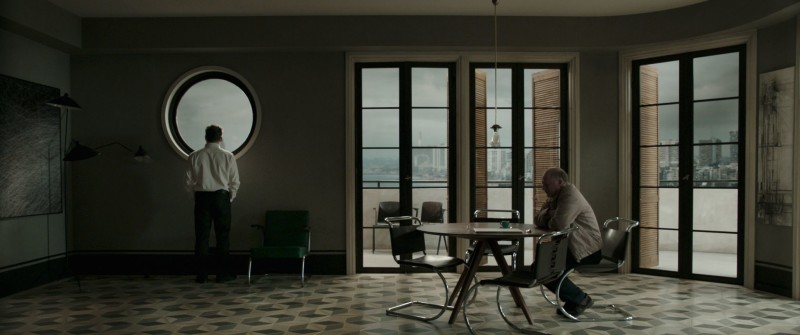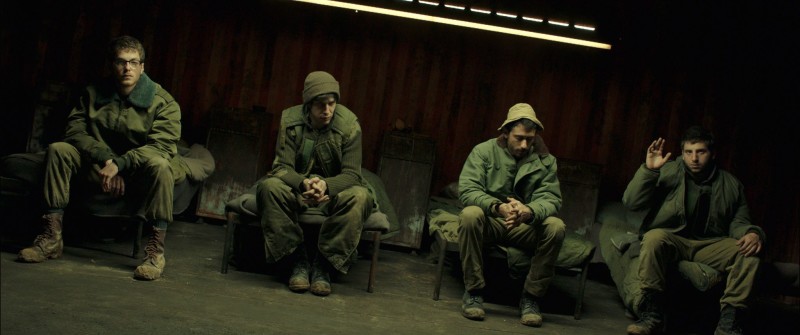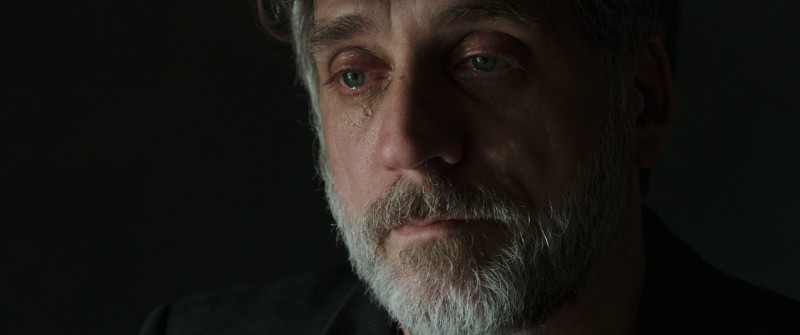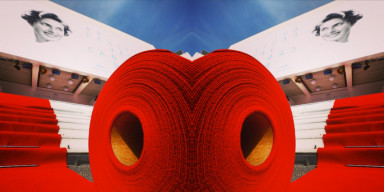Review by: Luigi Locatelli, scholar and film critic
Translated by: Steve Piccolo
FOXTROT by Samuel Maoz, one of the leading candidates for the Leone d’Oro. Though it is not the best film, it has been awarded with the prestigious Grand Jury Prize.

Foxtrot by Samuel Maoz. With Lior Ashkenazi, Sarah Adler, Yonatan Shirai.
The front running film in terms of press, has been in good position for the final prize rush. An affluent couple from Tel Aviv receive some terrible news. But nothing is as it seems. An authorial package, with use and abuse of symbols and metaphors as in certain 1960s cinema (with a camel akin to the giraffes and flamingoes of Sorrentino). In short, a perfect festival machine.

Many people here at the Lido are enthusiastic about this Israeli film that was predicted as the winner of the Leone d’Oro (the biggest obstacle is that the director Samuel Maoz has already won one, which was well deserved, in 2009 with Lebanon). I disagree. I have seen the best of the competition, starting with First Reformed by Paul Schrader and continuing with the films of Andrew Haig and Robert Guédiguian. But Schrader, with his total otherness, hasn’t the slightest chance of winning, while Foxtrot is a perfect, unstoppable festival machine, one of those that seduces juries with its lofty, brandished authorial mettle and expenditure of metaphors, charming the high-minded critics and the ladies who appreciate intelligent cinema. In other words, a good, at times excellent film, by weighed down by arty packaging and its pose as a predestined (and stubbornly pursued) masterpiece. The Venetian equivalent of what happened in May at Cannes with The Square, which indeed took the Palme d’Or (though the jury should not have been so generous). Regarding Foxtrot, I liked the narrative architecture, the dramaturgical expertise, the solid and geometric rigor of the unfolding of the events, the subdivision in three acts plus an epilogue in which everything links back up and finds an explanation. I was less impressed by the staging. In the pressbook Samuel Maoz calls into play – not inappropriately – Greek tragedy and the twists of Fate. To me Foxtrot seemed like an apologue, a theorem on the necessity-inevitability of making amends after harm done, whether it was intentional or not. On the mysterious ultra-natural justice that always puts human accounting back into balance. We cannot escape from our responsibilities or irresponsibilities; damage must be fixed, debts paid. Strangely enough, Foxtrot reminds us of a high-auteur version of the saga of Final Destination (those with eyes to see take note). But – and this is just my impression – maybe Samuel Maoz has drawn on the big reservoir of dark Yiddish stories and legends, shifting them into the hypermodern and translucent Israel of today, to reveal shadow zones and secret tensions. Most of all, the way of relating to the Palestinians of Israel.

A wealthy couple in Tel Aviv – he is an important architect – receives terrible news: their son, a soldier, has died during the course of his duties. The mother faints, the father falls into desperation and rage. And he begins to suspect that things did not happen as reported. Why have they not been told where and how Jonathan died? And why do they want to bury him without allowing anyone to see the body? We are just at the beginning of a film that passes from one plot twist to another, one reversed perspective to another. Reality is not as it seems. And neither is Jonathan’s death. End of Act I. Act II shifts into the desert, to a checkpoint on a road in the middle of nowhere, where no one ever passes. Almost no one. Until an event that smashes all the balances, and has an impact on Jonathan’s parents. To keep the tension alive, Samuel Maoz breaks up the story line, meting out revelations, mixing temporal planes. But he also allows many clues to emerge, and we can guess that the truth will not be fully revealed until the very last shot.
Foxtrot is an anomalous filmic object, quite different from the dominant art cinema of today. With kinships and reminders of a certain Sixties cinema steeped in symbols and metaphors, metaphysical suspensions and surreal drifts. Echoes of Fellini, but also of certain central European authors like the Polanski of the Polish period. And of the Trial of Kafka according to Orson Welles. A structured, closed film, where the shots are constructed to the point of artifice. The apartment in Tel Aviv used as a theatrical set. The desert outpost with its almost graphic features. Uses and abuses of metaphor: the container-cockpit that gradually slumps and sinks, the camel that appears incongruously multiple times (a messenger of Destiny?), a close relative of the giraffes and flamingoes of Sorrentino. And the foxtrot, danced by the little soldier in the desert and by the old couple with Alzheimer’s in a rest home (just how many couples in their seventies-eighties have we seen in this Venezia 74? In this film, the one with Redford & Fonda, in The Leisure Seeker by Virzì, and La Villa by Guédiguian). One step forward, one to the left, one to the right, one step back. I don’t know what it means, but undoubtedly this too is a very profound metaphor. Samuel Maoz exaggerates with this overload of signs, symbols, premonitions, allusions, coded messages. And unfortunately with a heaviness and a stony mien that has nothing to do with the grace of a certain kind of surrealism (just consider Buñuel). This prevents him from really taking flight, and from achieving the maximum result. I have also noticed that over the last year there have been three Israeli films about the death of a son. In 2016 at Cannes, in the Semaine de la critique, One Week and a Day; at Venezia 2017 not just Foxtrot, but also Longing, screened three days ago for the “Giornate degli autori.” It must mean something.
Read the Italian version on Luigi Locatelli’s website.


